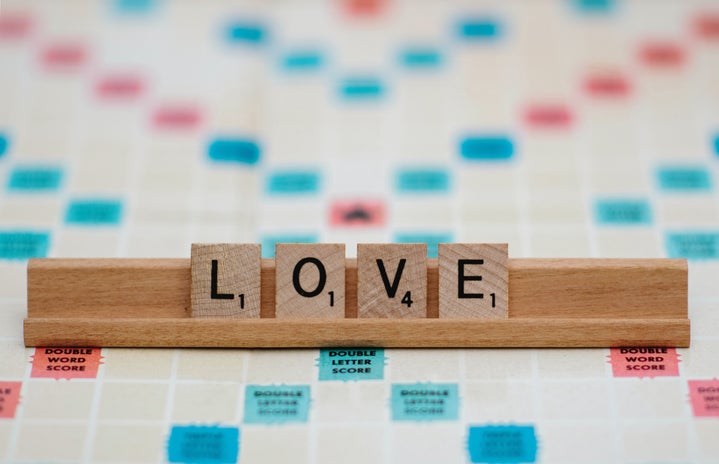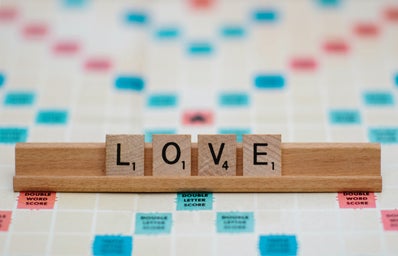Edited by: Vlada Taits
Love is universal, and it is messy; this I will readily admit. It is perhaps this curious amalgam which underlies the age-old endeavor – by Aristotelian philosophers and 21st century mathematicians alike – to delineate theories and formulae that transcribe the experience of love into definable (and therefore knowable?) propositions. Humans seem to share a common inclination to intellectualize, and to circumscribe with an academic language the arbitrary, mysterious phenomena of humanity that are typically only felt. At the same time, academic specialization and the rhetoric adopted in modern educational institutions often contribute to dichotomizing knowledge and creating irreconcilable chasms between “fields of study”. This renders us susceptible to losing sight of how these disciplines, while unequivocally and valuably divergent, are also often derived from and tethered to the same curiosities about our humanity and world.
Here, I evaluate some of the ways Love – so very familiar but also so very formidable – is deconstructed by mathematics and philosophy. This undertaking is as personal as it is intellectual; Love is an elusive entity, and I cannot say for certain, even now, whether this project has made it any less so. Still, I invite you to dive with me into its glorious and disorienting depths; we might just come up with new insights (or more questions! I would be content with either.)
Mathematics and Love
Math is categorical and systematic in a way feelings and emotions are not. However, it provides analytic tools with which we may derive empirical patterns from behavioral representations of love; its approach suggests there may be order and universality within the most ambiguous and personal of human experiences.
Please indulge me and consider this. I am a 20-year-old heterosexual female who will have at most 20 romantic partners over the course of my lifetime; among them, I must select one with whom I permanently settle. Furthermore, I can neither omnisciently “foreknow” the candidates nor backtrack to a previous partner once I have moved onto the next relationship. How should I approach this scenario? I could simply settle with candidate 1 (with fingers tightly crossed behind my back); there is a 1/20 chance I would have actually selected the “best option”, whatever that may entail. Alternatively, I could pick the first person with whom I am decently compatible, or I could break up over and over again until my options run out and I am forced to commit to the final candidate.
I regret to inform you that I have put none of these strategies to the test and am thus unable to comment on their satisfactoriness. However, the Optimal-Stopping Theory proposes a framework with which one may tackle similar scenarios. The simplified formula states that in order to maximize the chances of success, one should reject the first ~37% of candidates (persons 1 to 8) and select the next individual that comes along who is better than most – if not all – of the previous partners. This theory can also be applied temporally: my romantic trajectory is now constrained by a 10-year timeframe, instead of a 20-person pool of candidate. The Theory asserts, then, that I should reject everyone I meet prior to turning 24 (or 23.7) and select the best person I next encounter.
I would also like to briefly mention the Gale-Shapley algorithm and the Stable Marriage Problem, in which n heterosexual males and n heterosexual females rank every member of the other gender in order of preference. The algorithm matches these n pairs of individuals in a way that guarantees “marriage stability” – that no two people would reciprocally rather be with each other than with their assigned partners. I recommend checking out this article for a more in-depth explanation of the theory and its applications.
Unfortunately, I have neither the space nor mathematical expertise to elucidate the meticulous operations from which these algorithms are derived. I hope this overview has made clear, however, that behavioral patterns allow us to examine what is otherwise private and intangible, and to prescribe constancy to even the most complex phenomena. With that said, math’s characteristic empiricism and categoricity leave little accommodation for the more idiosyncratic and less tangible aspects of love – and, as such, something to be desired.
Philosophy and Love
“Philosophy” – philosophia – literally means “the love of wisdom”; it is only fitting, then, for us to turn our attention to the philosophical study of Love. Love has enthralled philosophers since the time of the Ancient Greeks, and for obvious reasons, too; Aristotle thought that Philosophy begins in wonder, and there is little as universally wonderful as Love.
The epistemology of love is concerned with the theory of knowledge. It asks how we may come to know or understand Love; can we truly make statements about (being in) love? There certainly has been no dearth of effort. Love has been likened – by the most spectacular artists this world has had to offer – to a losing game, a rose, a battlefield, and yes, an open door. Yet these propositions all seem to inevitably appeal to metaphors; what might this suggest about Love? May it be a private phenomenon only ever accessed and intuited by the lover, and one which renders the language we impose on it rudimentary and reductive? On the other hand, the metaphysics of love examines its nature and fundaments. How do we distinguish love from other kinds of feelings and emotions? Are synonymous behavioral indicators necessary for us to recognize we are falling (or have fallen), or do they only serve to confirm what we simply know and, perhaps, just can’t help? Most would not dispute that different people perceive and express love differently; but is this diversity extended to the phenomenological experience of love (i.e., what it feels like to love or be loved)?
The ethics of love is concerned with the form it should (or should not) adopt, and with its relationship with moral duty. Some posit that love and morality are fundamentally incompatible. Moral perspectives are often characterized – particularly by staunch deontologists – as categorical and impartial, and this seems to contradict the very essence of Love. After all, does loving not in itself entail a special type of attitude? Do these points of view, then, place conflicting demands on our consciousness? Must we surrender one to do justice to the other, such that a lover always abandons some aspects of their moral duty, and a fully dutiful person never attains love in its entirety? Or is this a fallacious dichotomy obscuring key qualifications that would reconcile the obligations imposed by love and by morality?
Final note
The course of human civilization has provided us with a bottomless reservoir of vocabulary and algorithms to scrutinize anthropocentric mysteries with. Few would construe this as a deficiency, but we must also guard against becoming so preoccupied with academic jargon and technicalities that we become paradoxically fenced off from our intuitions. Our systematic study of the world should bolster the reconciliation between intellect and instinct; unfortunately, this does not consistently seem to be the case, and we sometimes observe a severance between the two that parallels the disjointedness between academic disciplines.
There is one final pervasively binarized perspective worth mentioning here. Its implications are particularly pertinent to the evaluation of Love; its contemplation, however, must be left to each individual as our ride together concludes: Head or Heart?
(Sincerest thanks to Alexandra, Hailey, Melissa and Zainab for sharing with me their mathematical/ philosophical wisdoms! I have thoroughly enjoyed and appreciated every conversation we have had (and every paper sent my way).)

